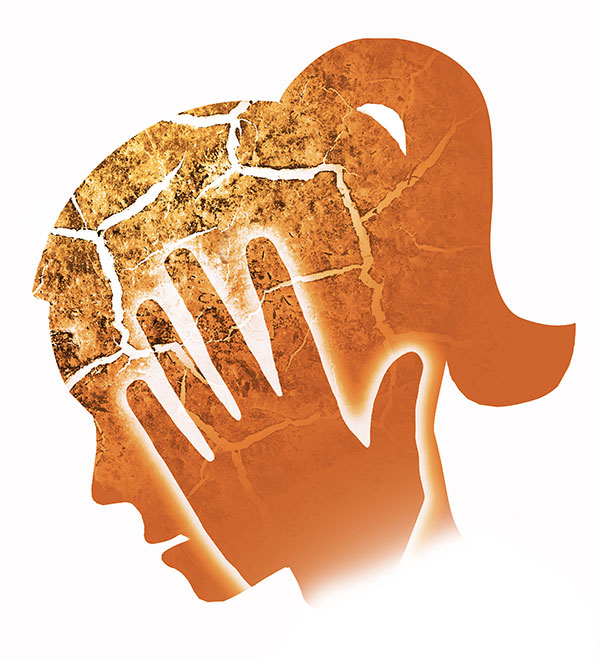
The correct answer is, when it’s a migraine. This is true for a couple of reasons.
First, if you suffer from migraines, you know that it’s no ordinary headache. And second, migraines are actually neurological events, in which migraines are a symptom—one that tends to get a great deal of attention because they are so painful.
Migraines usually occur in stages, which change as the event develops. You may notice that they begin with subtle signs, like fatigue or irritability. This is followed by what’s called an aura, with changes in vision or speech.
The “headache” is the main event, which can lay you out for hours, and even days. With this stage, you may experience fevers, chills, nausea, vomiting, and light or sound sensitivity. The final stage of a migraine is a washed out feeling, fatigue, or what some sufferers call a shadow migraine—the pain is gone, but you know it was there.
Some people confuse really bad headaches with migraines, but in reality the only thing migraines have in common with headaches are that they both cause pain. Tension headaches are the result of stress and often begin in your shoulders and neck. Cluster headaches are intense and cause a watery eye or nasal drainage—often one-sided. Sinus headaches are the result of a sinus infection or congestion, and rebound headaches are caused by suddenly stopping a medication or coffee. However, these are not related to migraines.
In Western medicine, there are a number of medications available for treating migraines, running the spectrum from over the counter analgesics to powerful prescription medications. Some doctors also offer Botox, neurostimulating devices, and even behavioral therapy. However, despite the variety of treatment options, migraines persist for a larger number of sufferers.
Many people who get migraines want to know if acupuncture can relieve their symptoms, and recent research into the topic is promising.
In one recent study of 249 migraine sufferers, Chinese researchers found that acupuncture decreased the frequency and severity of migraines more effectively than sham acupuncture or no treatment. The results were published in a 2017 report in the Journal of the American Medical Association, and are just the most recent in a body of research documenting the effectiveness of acupuncture for migraines.
While conventional treatments and medications may be helpful in treating migraines, they don’t work for everyone, and some people prefer not to take the strong medications necessary to alleviate their symptoms.
If you are one of those people and are interested in learning whether acupuncture can effectively treat your migraines, call us today for a Free Consultation.
